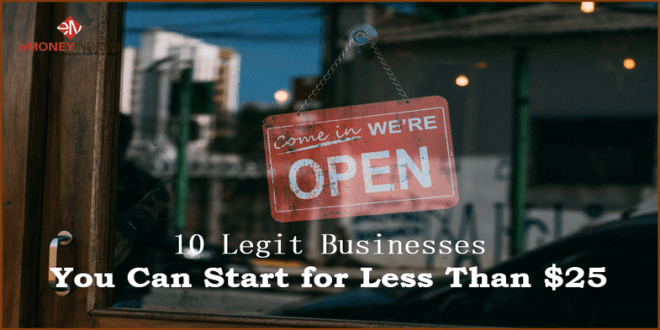If you’re a lawyer like me, you are probably swamped just trying to do your job.
But what if you want to make a few extra bucks while still holding onto your job? A side gig may not be practical if your job as a lawyer keeps you fully occupied. That’s where passive income comes in.
That was my thinking when I started looking into passive income strategies around 10 years ago. Over that time, I found a few that can (i) fit nicely into a busy lawyer’s life and (ii) take full advantage of a lawyer’s natural skillset.
Now I am not going to talk about boring passive income strategies, like buying dividend stocks or opening up high yield savings accounts. I suppose those strategies are passive and can work, but the returns can be pretty meager. My strategies require a bit more effort and oversight but can yield far better results.
This article is going to cover 7 strategies that can provide you solid streams of passive income (including some of my best tips for success) while working full-time as a lawyer.
Let’s get into it!
This post may contain affiliate links. If you click on a link and complete a transaction, I may make a small commission at no extra cost to you.
The information contained in this post is for informational purposes only. It is not a recommendation to buy or invest, and it is not financial, investment, legal, or tax advice. You should seek the advice of a qualified professional before making any investment or other decisions relating to the topics covered by this article.
1. Real Estate Investing

I started investing in real estate over ten years ago and I currently own nine rental properties. I self-manage all of them. Rental properties played a key role in making me a multi-millionaire and my rentals generate thousands in passive income each month.
Why are rentals so great?
Here are some of the key benefits of rental property investing:
- Cash flow each month (that’s money in your pocket)
- Appreciation (which is when your property values go up)
- Tenants pay off your mortgage
- Tax benefits that can shelter your rental income
- Strong ROIs (well over 10% if done right)
- Inflation Hedge
How Much Work is Involved In Real Estate Investing?
Not as much as you may think.
On average, I spend about 1-3 hours per month on it (that’s for all nine properties). Except when I have vacancies coming up – then I spend about 10 hours per month.
People think the toughest part of being a landlord is dealing with fixing toilets, etc.
That’s a myth.
Repairs and maintenance are a snap – I just give my handyman (or appliance guy, HVAC tech, etc.) a call and he takes care of it. In fact, that’s how I only have to spend a few hours per month managing nearly ten properties. Vacancies on the other hand…they can decimate your profits and cause you real grief, so I focus on minimizing them.
How Do You Get Started In Real Estate Investing?
There’s no secret here.
I saved like hell and tried to buy one quality property near my house each year. Sometimes I was able to buy more, sometimes less. Eventually, I built up a nice portfolio, developed a reliable and cost-effective team to handle repairs and maintenance (this is done through trial and error), and figured out how to automate a lot of stuff so that things mostly run on auto-pilot now.
Being a lawyer made it easier. As an attorney, you have some natural advantages when it comes to real estate investing:
- First, you should be way ahead of non-lawyers when it comes to reading contracts and leases and you have likely developed some fine negotiating skills by now.
- Second, you should have no trouble navigating state and local landlord/tenant laws and probably already have some familiarity with federal fair housing statutes. That should keep you out of trouble.
- Finally (and perhaps most importantly), your job as a lawyer is to solve problems for other people – that means your problem solving skills should be solid. That’s 90% of rental property management.
If investing in rental properties sounds interesting and you want to learn more, here are some articles that I wrote that you may find helpful.
Does all of this still sound like too much time and effort? You can of course simply invest some of your money into real estate crowdfunding platforms and make completely passive income.
The bad news is that, in many cases, these real estate crowdfunding platforms have steep minimum investment requirements.
But not all of them have high bars – some can be accessed by small investors.
I like Fundrise and invest with them personally. They have really low minimum investment requirements. As of the date of this article, their starter package only requires a $10 investment.
If you join them via this link, you can be part of their “refer a friend” program where you (and I) can receive $50 worth of bonus shares for signing up. If you want to help support the blog and also get some free shares, it’s something you may want to consider.
2. Blogging

Now that my rental properties are pretty much on auto-pilot, I have turned my focus to my second passive income stream: blogs.
I created 3 blogs (including this one) and have started earning income from them. The blogs are still relatively young and I am not making a ton of money yet, but they are starting to generate some profit and it is exciting to see my revenue grow each month. What’s more exciting is that the growth is not linear, it’s exponential. I think this strategy has huge potential
Now I know I am talking to a bunch of lawyers, so I appreciate how skeptical you lot can be.
But I am telling you, it can work. Especially if you are a skilled writer. This passive income strategy is perfect for lawyers because we are trained to write in a clear, organized, and persuasive way. We are also trained to conduct thorough research and cover all of the bases, which is a huge plus when writing blog posts.
Put those things together and you have a winning combination.
So, How Is Blogging Passive?
Well, it isn’t passive until you have the content written.
But once you have a site full of high-quality, evergreen content that generates traffic, then you are going to start getting passive income.
Blogs are generally monetized through ads or affiliate links placed on the website. That’s just a fancy way of saying you can get paid every time someone visits the blog and views or clicks on an ad or buys a product you are promoting through one of your affiliate links.
Traffic leads to revenue. It’s really that simple.
And unlike other businesses, there is no physical location, no inventory, no customers, no employees, no marketing, and no orders. Talk about a business that operates passively!
If this sounds intriguing to you, check out my article on How to Start a Blog From Scratch.
I cover all of the key areas you need to know, including how to set up your website and most importantly, my best tips for writing great articles, getting traffic to your blog, and monetizing that traffic.
If you don’t have the time or inclination to do this on your own, you can hire a service to create a website for you. Make Lemonade is a UK based firm that specializes in this.
I have used their content writing service to help me expand my blogs when I was running short on time, but they do offer a full service model, where they will create your website for you from start to finish and include content that has gone through their rigorous keyword research process.
Check them out here if you want to learn more.
Can I Make It Easier?
If you don’t have time to write articles, you can outsource the writing.
Tons of companies will do it for you, including textbroker, iwriter, writer access, and fatjoe. Or you can hire people directly on upwork, fiverr, or problogger (this last option can be expensive, but many bloggers who are searching for really high-quality writers find success there).
It may take some trial and error to find a good writer, but it can be done.
3. Rent Out Your Car

You can use online platforms like Turo to rent out your car. It is like the Airbnb of car rentals and can be a terrific way to generate passive income.
One option is to use your existing car and rent it out when you don’t need it (perhaps on the weekends). But you can also buy a car just for this purpose and rent it out. This a thing and there are people who own fleets of cars and rent them out through Turo.
The cash flow can be good, too.
Turo has a tool called the Carculator, which allows you to type in the year, make, and model of your car. The Carculator will then give you an estimate of how much you can make renting out that car on Turo. I love these types of tools because they give you amazing data!
I typed in a 2017 Toyota Prius Three Touring and the Carculator indicated that I could earn $388 per month.
That works out to $4,656 per year. Not bad for a relatively hassle-free source of extra income.
Want to learn more about this strategy? Check out my article on renting out cars using Turo.
Now there is going to be some work involved here – it’s not completely passive. You will need to deal with prospective customers, coordinate timing and location, deal with potential damage to your car, etc. But if you are just going to be doing this on the weekends for a little extra cash, it probably won’t be too much trouble.
Similarly, you can use Neighbor to rent out your extra storage space (such as basements, garages, closets, etc.). I have used them myself – their platform is easy to use and you can get up and running in minutes. I participate in their “refer a friend” program, so if you sign up using this link, you (and I) will get a $50 Amazon gift card when you list your space.
If you want to learn more about this strategy, check out my article on the topic here.
5. Rent Out Other Items You Already Own
These are not the only options you can use to rent out your stuff. You can also rent out RVs through RVShare. This can be great because you can earn decent income when you are not using your RV (which can be most of the time).
Other ideas include renting out your spare parking spaces, backyard, swimming pool, baby equipment, musical instruments, and much more. For the full list (with links to companies you can use), check out my article on 15 ways to make truly passive income with no money.
6. Invest in Alternative Cash Flowing Assets
You can also buy alternative cash flowing assets that can be operated on an absentee basis. I am talking about assets like vending machines, ATMs, billboards, and similar assets that make money for you while you are free to focus on other things.
If you want to learn more about how to get started buying these types of cash-flowing assets and earning passive income through them, check out my articles below:
7. Peer to Peer Lending

You can generate passive income through peer-to-peer lending.
This isn’t a very large portion of my portfolio because I am so heavily weighted toward real estate and stocks, but I like it for its diversification and ease of use.
If you don’t know what peer-to-peer lending is, it’s where you lend money to various borrowers through an online platform.
As of this writing, some of the major platforms in this space include Prosper (which I use) and Funding Circle. Many peer-to-peer lending platforms are not open to individual investors, so be mindful of that when looking around.
The process is simple.
Let’s take Prosper as an example. You go to their website and open up an account (takes about 3 minutes). You then link that account with your bank account and fund your Prosper account. You can invest with as little as $25.
Once your account funds, you can look for loans that meet your criteria and lend out your money. Then you get paid.
Simple and completely passive. I love it.
Conclusion
So there you have it. Seven strategies for lawyers to generate passive income.
Look – it’s tough being a lawyer and you work hard for your money. It’s only right that you start earning passive income and making your money work hard for you. I hope one of my strategies resonates with you and starts you on the path to generating passive income.
In my view, it’s the best type of income there is!
If you want more great passive income ideas, check out my ultimate beginner’s guide to passive income [25+ strategies that work], where I cover tons of effective strategies that generate passive income.
One of my favorite articles on passive income is my piece on businesses that run themselves. In that article, I cover some great businesses that can generate attractive levels of return without a lot of day to day involvement by the owner. As a lawyer, I think these businesses are really interesting because you can still practice law, but you get to enjoy great returns that can really only be achieved by owning a business. Check out the article here if you want to learn more.





